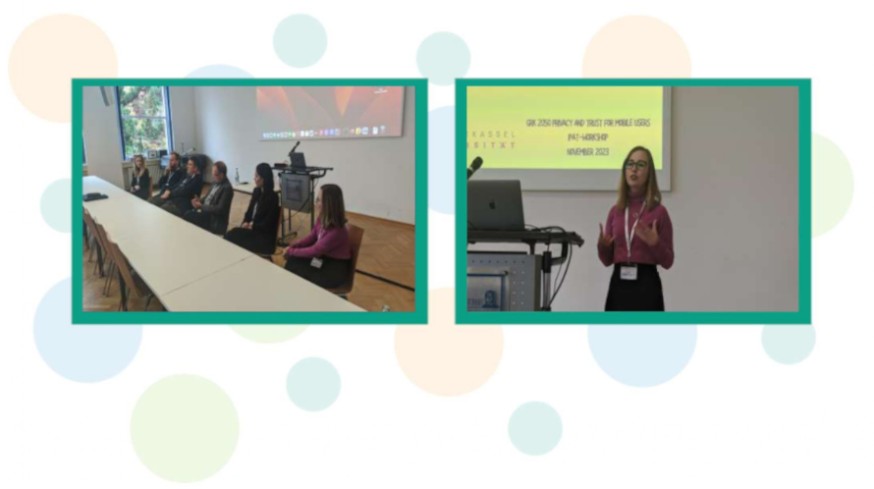5th Interdisciplinary Workshop on Privacy and Trust (iPAT 2023) held in Frankfurt
2023/11/14

The fifth Interdisciplinary Workshop on Privacy and Trust (iPAT 2023) was held in Frankfurt on November 14, 2023 under the title: Trust Me Bro – How to Assess the Quality of Information in Times of Information Overload, ChatGPT and a Blending of Facts and Opinions?
The Internet offers unprecedented possibilities for disseminating and gathering information. Considering the flood of information spawned by the digital transformation of our societies, it has become increasingly difficult to filter the information presented, to recognize its truthfulness and relevance, and to differentiate between opinions backed by pseudo facts and reliable sources of information, and this is especially true for young people, who use new technologies and services to inform themselves and catch up with news and current events.
The “Source: trust me bro” meme satirizes this development by illustrating unverifiable information generated by users. This situation has intensified since the release of ChatGPT, which dominates the news headlines by, among other things, making up scientific sources and even court rulings. So, how can publicly available and disseminated information be trusted and its quality be assessed?
One of the possible solutions could be a strict prevention of anonymity in the use of digital services, especially in the creation and distribution of content in favor of attributability and undeniability. However, real world examples show that this can result in a contemporary and inseparable undermining and destruction of our understanding of privacy. Hence, the trust in public information is inherently connected to the privacy of users. Another example might be the moderation of content which has already been applied by several platforms. But does this measure really help to increase the trust in and quality of information? What are potential risks and ethical side effects, e.g.,by an over regulation and a censorship of information? How can a false deletion of relevant information and legitimate opinions be prevented and who decides, what information is relevant and which opinions are legitimate?
All of these questions were thoroughly discussed with the participants of the iPAT Workshop and the guest speakers who were: Viktoria Horn (Uni Kassel), Amancay Ancina (University of Duisburg-Essen), Hans Brorsen & Richard Falk (Valid Project), Martin Steinebach (Fraunhofer SIT), Victoria Paganella (Uni Kassel) and Professor Max Mühlhäuser (TU Darmstadt).

